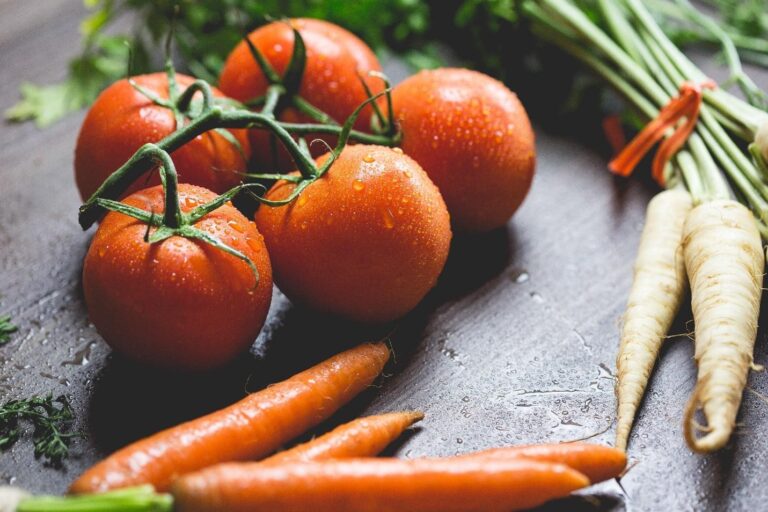Food can be a game-changer during recovery. Addiction does not impact you mentally, but physically too. The foreign substance that you take in impacts your organs and systems. Therefore, you need nutrients to stay healthy and recover your body from the aftermaths of taking drug. Cardiovascular disease, lung issues, anxiety, mental health issue, etc., are the most common health-related issue with addiction.
Treatments, therapies, counseling sessions can help your mind heal, but they can’t do much for the physical organs of your body. When taking drug, becoming oblivious to your health, ignoring food, and having sleep disorders is common. So, malnourishment is also a consequence.
The far-reaching health impact of drug addiction requires the individuals in an addiction rehab program to take care of their food. Taking food that replenishes your body with the right nutrients in the right amount can be beneficial. It can speed up your recovery too. So, food can become an important parameter when choosing a rehab program or facility. Many people entering the rehab facility are oblivious to the food requirements of their bodies. Therapy plans, counseling sessions, medications, etc., end up getting more attention.
In reality, when you are choosing a rehab, you must look at the meal plans of the facility and how they work on the nutritional deficiency of your body. You must check their daily menu to get an idea of how much attention they pay to this aspect of treatment. Most highly efficient treatment centers like Delphi Health Group are known for developing all-inclusive treatment plans, considering all aspects of treatment. They pinpoint the importance of a healthy diet and deliberately add those nutrients to assist in your recovery. If you are unsure about the foods to look for on the treatment plan, here are some suggestions. But before that, you must know what a balanced diet during recovery means.
Balanced diet for recovery
A diversified diet that has all the nutrients needed for healing your body and mind is a balanced diet for you. It must contain grains, fruits, vegetables, dairy, poultry, and protein. All these components are essential for healing a malnourished body. Your emphasis should be on the whole and healthy food instead of processed food loaded with preservatives. Whole foods, whether fruits, vegetable, or meat, is not treated or processed in any way. All foods are good for recovery, but some play a more prominent role than others based on the nutritional elements they have. Here is a list of them.
1.Foods with amino acid tyrosine
Amino acids are the structural blocks of protein. So, if you are eating food rich in amino acids, it automatically implies getting proteins for your body. When you think about proteins, the first thing that comes to your mind is meat. Beef, lamb, pork, and poultry are some examples of meat. But there are a plethora of other ways to get proteins too.
Tyrosine is an amino acid that is essential for making proteins and has stress-reliving and mental-sharpness properties. Tyrosine is also a precursor to dopamine production, the “feel-good” neurotransmitter. The level of dopamine drops in the early phases of recovery, leading to low motivation, depressed mood, and intense cravings.
Our body can make the tyrosine and regulate its levels too. But if you are not taking a healthy diet, you might have a deficiency of this essential amino acid needed to restore your body’s vitality. Food containing tyrosine includes bananas, soybean, lamb, pork, and sunflower seeds.
2.Foods rich in L-glutamine
It is another amino acid known for its antioxidant and immunity benefits. Sugar cravings are common during the initial recovery days, and L-glutamine can reduce these cravings. There are studies linking sugar intake with stress, depression, and inflammation. Therefore, it can sabotage your recovery process. Hence, L-glutamine is your combating force. Foods that can boost the levels of L-Glutamine in your body include leafy greens like parsley, spinach, kale, etc. Alternatively, you can also include carrots, celery, beans, Brussels sprouts, and protein-rich foods like beef, dairy products, and chicken in your diet.
3. Foods that enhance your immunity
Foods that are packed with antioxidants can enhance your immunity. Resultantly, you will have better capability to fight diseases. These foods can more speedily recover you from addiction-related damages. Moreover, antioxidant-rich foods also help in the cleansing of the body during the detox process. Food such as berries, leeks, onions, pecans, and artichokes have antioxidant properties.
4. Foods that provide healthy fat
Fats become detrimental when not taken in the right quantity and in the right way, so they are not always bad for the body. Fats can provide fulfillment to your body and reduce cravings. Keep dry nuts under your hand. Foods like fish and avocado also have good fats in them. Additionally, walnuts contain amino acids essential for making proteins in your body, so they perform a dual duty. Brazilian nuts contain a high proportion of selenium, an antioxidant good for restoring liver function.
Conclusion
Food is an essential aspect of your addiction recovery. Therefore, it must be considered when choosing a plan. The right diet can replenish your body with the nutrients essential for your bodily functions and organs. All foods have body-friendly nutrients, but some foods are more preferred for addiction recovery. Therefore, they must be added to your diet plan to speed up the recovery process.
